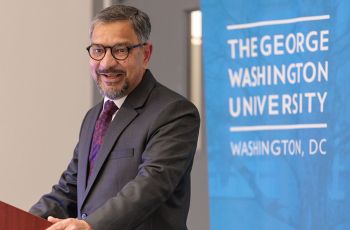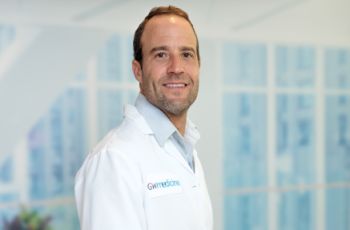WASHINGTON (May 5, 2020) - Enrollment in a supportive oncodermatology program is associated with a significantly improved quality of life score, according to a recent survey from the George Washington University (GW) Cancer Center. The results of the survey were published in the Journal of Drugs in Dermatology.
Supportive oncodermatology is a growing field that provides treatment and preventive care to oncology patients who experience adverse dermatologic events associated with their cancer treatments. While dermatologic health in cancer patients is gaining attention, the literature evaluating the impact of supportive oncodermatology clinics on patient quality of life is limited.
To identify the impact of these programs, the group at GW performed a cross-sectional survey of adult cancer patients enrolled at the Supportive Oncodermatology Clinic at GW Cancer Center. Those who met inclusion criteria were invited to complete an online survey with questions adapted from the Dermatology Life Quality Index and Patient Satisfaction Questionnaire.
“Our results show that patient quality of life benefited significantly from enrollment in the clinic’s programs," said Adam Friedman, MD, director of the GW Supportive Oncodermatology Clinic, interim chair of the Department of Dermatology at the GW School of Medicine and Health Sciences, and senior author on the study. “The supportive oncodermatology field is a critical element of multidisciplinary cancer care that addresses dermatologic wellness in cancer patients."
The respondents reported satisfaction with the care they received at the GW Supportive Oncodermatology Clinic, especially in terms of providers’ interpersonal manner and communication and would recommend this type of care to other cancer patients.
Prior to receiving care at the clinic, patients had an average quality of life score of 6.5, indicating a “moderate effect" dermatologic adverse events have on quality of life. On average, scores were significantly reduced by 2.7 points after joining the clinic.
While patients reported overall satisfaction with dermatologic care, many reported being unsure if those interventions aided in adherence to anticancer treatment. Because of this, the authors pointed out, it is necessary to develop evidence-based management systems for dermatologic adverse effects.
The article, titled “The Influence of Supportive Oncodermatology Interventions on Patient Quality of Life: A Cross-Sectional Survey," is published in the Journal of Drugs in Dermatology and is available at jddonline.com/articles/dermatology/S1545961620P0477X.
Media: For more information or to set up an interview, contact Ashley Rizzardo at amrizz713 [at] gwu [dot] edu (amrizz713[at]gwu[dot]edu) or 202-994-8679.
###
About the GW Cancer Center
The George Washington University (GW) Cancer Center is a collaboration of the George Washington University, the GW Hospital and the GW Medical Faculty Associates to expand GW’s efforts in the fight against cancer. The GW Cancer Center also incorporates all existing cancer-related activities at GW, with a vision to create a cancer-free world through groundbreaking research, innovative education and equitable care for all. Learn more about the GW Cancer Center at gwcancercenter.org.



